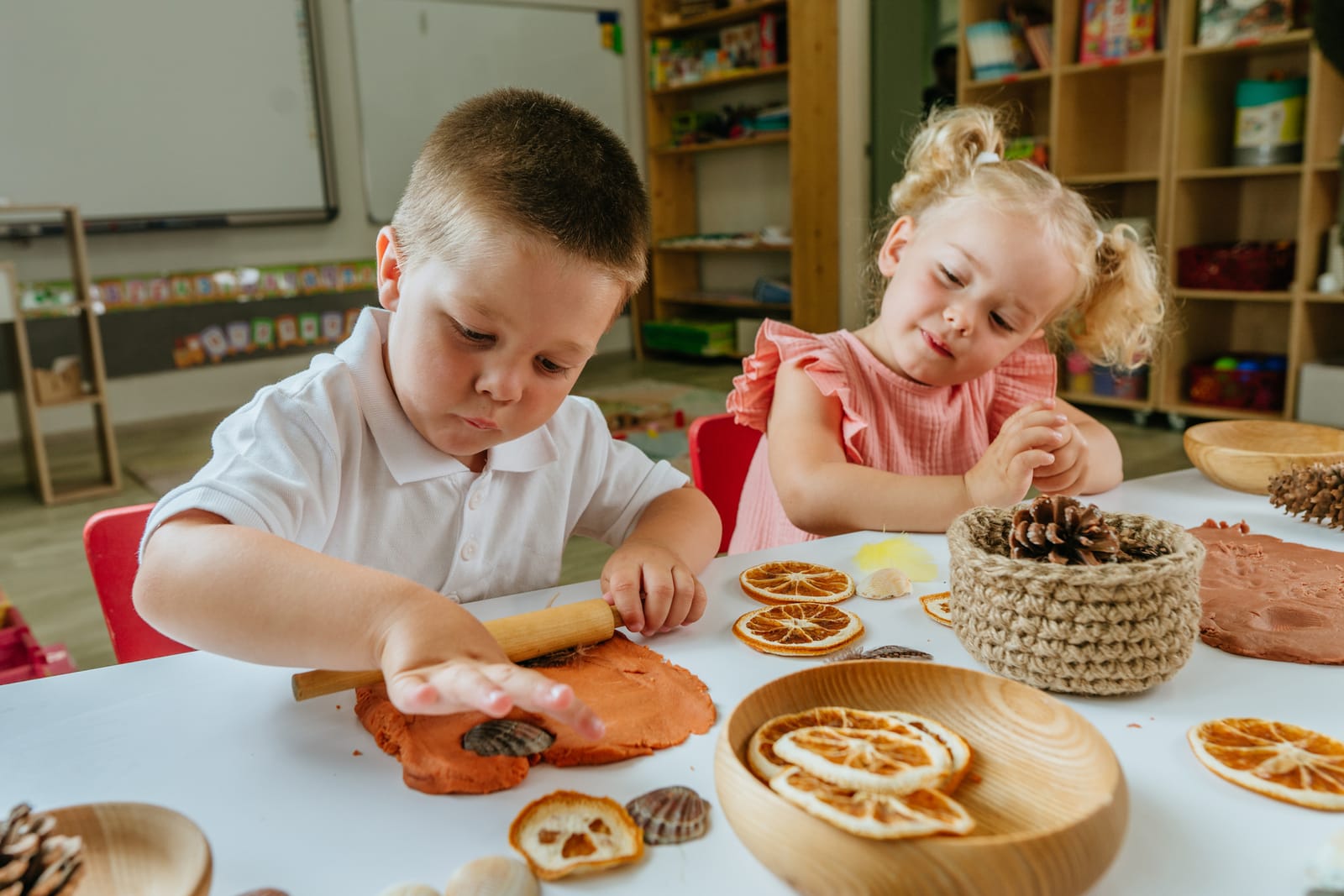John Taylor Gatto explains why our education system doesn't work. We live in a time of great school crisis. Our school crisis is a reflection of a greater social crisis. We seem to have lost our identity.
Children and old people are penned up and locked away from the business of the world to a degree without precedent - nobody talks to them anymore and without children and old people mixing in daily life a community has no future and no past, only a continuous present.
In fact, the name “community” hardly applies to the way we interact with each other. We live in networks, not communities, and everyone I know is lonely because of that. In some strange way school is a major actor in this tragedy just as it is a major actor in the widening guilt among social classes.
John Taylor Gatto accepts his Teacher of the Year award with this inspirational speech about the failures in our education system.
I’ve noticed a fascinating phenomenon in my twenty-five years of teaching - that schools and schooling are increasingly irrelevant to the great enterprises of the planet. No one believes anymore that scientists are trained in science classes or politicians in civics classes or poets in English classes. The truth is that schools don’t really teach anything except how to obey orders. This is a great mystery to me because thousands of humane, caring people work in schools as teachers and aides and administrators but the abstract logic of the institution overwhelms their individual contributions. Although teachers do care and do work very hard, the institution is psychopathic - it has no conscience. It rings a bell and the young man in the middle of writing a poem must close his notebook and move to different cell where he must memorize that man and monkeys derive from a common ancestor.
I don’t think we’ll get rid of schools anytime soon, certainly not in my lifetime, but if we’re going to change what is rapidly becoming a disaster of ignorance, we need to realize that the school institution “schools” very well, but it does not “educate” - that’s inherent in the design of the thing. It’s not the fault of bad teachers or too little money spent, it’s just impossible for education and schooling ever to be the same thing.
How schools control our children
Schools were designed to be instruments of the scientific management of a mass population. Schools are intended to produce through the application of formulae, formulaic human beings whose behaviour can be predicted and controlled. To a very great extent, schools succeed in doing this. But our society is disintegrating, and in such a society, the only successful people are self-reliant, confident, and individualistic - because the community life which protects the dependent and the weak is dead. The products of schooling are, as I’ve said, irrelevant. Well-schooled people are irrelevant. They can sell film and razor blades, push paper and talk on the telephones, or sit mindlessly before a flickering computer terminal but as human beings they are useless. Useless to others and useless to themselves.
It is absurd and anti-life to be part of a system that compels you to sit in confinement with people of exactly the same age and social class. That system effectively cuts you off from the immense diversity of life and the synergy of variety, indeed it cuts you off from your own part and future, scaling you to a continuous present much the same way television does.
It is absurd and anti-life to be part of a system that compels you to listen to a stranger reading poetry when you want to learn to construct buildings, or to sit with a stranger discussing the construction of buildings when you want to read poetry.
It is absurd and anti-life to move from cell to cell at the sound of a gong for every day of your natural youth in an institution that allows you no privacy and even follows you into the sanctuary of your home demanding that you do its “homework”.
Media and schooling are the two biggest impacts
Two institutions at present control our children’s lives - television and schooling, in that order. Both of these reduce the real world of wisdom, fortitude, temperance, and justice to a never-ending, non-stopping abstraction. In centuries past the time of a child and adolescent would be occupied in real work, real charity, real adventures, and the realistic search for mentors who might teach what you really wanted to learn. A great deal of time was spent in community pursuits, practicing affection, meeting and studying every level of the community, learning how to make a home, and dozens of other tasks necessary to become a whole man or woman.
But here is the calculus of time the children I teach must deal with:
Out of the 168 hours in each week, my children sleep 56. That leaves them 112 hours a week out of which to fashion a self.
My children watch 55 hours of television a week according to reports. That leaves them 57 hours a week in which to grow up.
My children attend school 30 hours a week, use about 6 hours getting ready, going and coming home, and spend an average of 7 hours a week in homework - a total of 45 hours. During that time, they are under constant surveillance, have no private time or private space, and are disciplined if they try to assert individuality in the use of time or space. That leaves 12 hours a week out of which to create a unique consciousness. Of course, my kids eat, and that takes some time - not much, because they’ve lost the tradition of family dining, but if we allot 3 hours a week to evening meals, we arrive at a net amount of private time for each child of 9 hours.
It’s not enough. It’s not enough, is it?
Implications of schooling on a child's life
I want to tell you what the effect is on children of taking all their time from them - time they need to grow up - and forcing them to spend it on abstractions:
- The children I teach are indifferent to the adult world. This defies the experience of thousands of years. A close study of what big people were up to was always the most exciting occupation of youth, but nobody wants to grow up these days and who can blame them? Toys are us.
- The children I teach have almost no curiosity and what they do have is transitory; they cannot concentrate for very long, even on things they choose to do. Can you see a connection between the bells ringing again and again to change classes and this phenomenon of evanescent attention?
- The children I teach have a poor sense of the future, of how tomorrow is inextricably linked to today. As I said before, they have a continuous present, the exact moment they are at is the boundary of their consciousness.
- The children I teach are ahistorical, they have no sense of how past has predestined their own present, limiting their choices, shaping their values and lives.
- The children I teach are cruel to each other, they lack compassion for misfortune, they laugh at weakness, and they have contempt for people whose need for help shows too plainly.
- The children I teach are uneasy with intimacy or candor. My guess is that they cannot deal with genuine intimacy because of a lifelong habit of preserving a secret inner self inside a larger outer personality made up of artificial bits and pieces of behaviour borrowed from television or acquired to manipulate teachers. Because they are not who they represent themselves to be the disguise wears thin in the presence of intimacy so intimate relationships have to be avoided.
- The children I teach are materialistic, following the lead of schoolteachers who materialistically “grade” everything - and television mentors who offer everything in the world for free.
- The children I teach are dependent, passive, and timid in the presence of new challenges. This is frequently masked by surface bravado, or by anger or aggressiveness but underneath is a vacuum without fortitude.
Why its important to foster independence
What can be done? First we need a ferocious national debate that doesn’t quit, day after day, year after year. We need to scream and argue about this school thing until it is fixed or broken beyond repair, one or the other.
If we can fix it, fine; if we cannot, then the success of homeschooling shows a different road to take that has great promise. Pouring the money we now pour into family education might kill two birds with one stone, repairing families as it repairs children.
Right now we are taking all the time from our children that they need to develop self-knowledge. That has to stop. We have to invent school experiences that give a lot of that time back, we need to trust children from a very early age with independent study, perhaps arranged in school but which takes place away from the institutional setting. We need to invent curriculum where each kid has a chance to develop private uniqueness and self-reliance.
We’ve got to give kids independent time right away because that is the key to self-knowledge, and we must re-involve them with the real world as fast as possible so that the independent time can be spent on something other than more abstraction. This is an emergency, it requires drastic action to correct - our children are dying like flies in schooling, good schooling or bad schooling, it’s all the same. Irrelevant.
How can we involve our children in community?
What else does a restructured school system need? It needs to stop being a parasite on the working community. Of all the pages in the human ledger, only our tortured entry has warehoused children and asked nothing of them in service to the general good. For a while I think we need to make community service a required part of schooling. Besides the experience in acting unselfishly that will teach, it is the quickest way to give young children real responsibility in the mainstream of life.
For five years I ran a guerilla program where I had every kid, rich and poor, smart and dipsy, give 320 hours a year of hard community service. Dozens of those kids came back to me years later, grown up, and told me that one experience of helping someone else changed their lives. It taught them to see in new ways, to rethink goals and values. It happened when they were thirteen, in my Lab School programme - only made possible because my rich school district was in chaos. When “stability” returned the Lab was closed. It was too successful with a wildly mixed group of kids, at too small of a cost, to be allowed to continue. We made the expensive elite programs look bad.
There is no shortage of real problems in the city. Kids can be asked to help solve them in exchange for the respect and attention of the total adult world. Good for kids, good for all the rest of us. That’s curriculum that teaches Justice, one of the four cardinal virtues in every system of elite education. What’s sauce for the rich and powerful is surely sauce for the rest of us - what is more, the idea is absolutely free as are all other genuine reform ideas in education. Extra money and extra people put into this sick institution will only make it sicker.
What would happen if we placed family firmly at the heart?
Independent study, community service, adventures in experience, large doses of privacy and solitude, a thousand different apprenticeships, the one day variety or longer - these are all powerful, cheap and effective ways to start a real reform of schooling. But no large-scale reform is ever going to work to repair our damaged children and our damaged society until we force the idea of “school” open - to include family as the main engine of education.
Family is the main engine of education. If we use schooling to break children away from parents - we’re going to continue to have the horror show we have right now. The curriculum of family is at the heart of any good life, we’ve gotten away from that curriculum, time to return to it. The way to sanity in education is for our schools to take the lead in releasing the stranglehold of institutions on family life, to promote during school time confluences of parent and child that will strengthen family bonds. I have many ideas to make a family curriculum and my guess is that a lot of you will have many ideas, too, once you begin to think about it. Our greatest problem in getting the kind of grass-roots thinking going that could reform schooling is that we have large vested interests pre-empting all the air time and profiting from schooling just exactly as it is despite rhetoric to the contrary. We have to demand that new voices and new ideas get a hearing, my ideas and yours. We’ve all had a bellyful of authorized voices mediated by television and the press - a decade long free-for-all debate is what is called for now, not any more “expert” opinions. Experts in education have never been right, their “solutions” are expensive, self-serving, and always involve further centralization. Enough. Time for a return to democracy, individuality, and family.
MORE INSPIRATION
EXPLORE More articles on education are available at naturalchild.org
READ Dumbing Us Down: The Hidden Curriculum of Compulsory Schooling by John Taylor Gatto
FOLLOW John on X at @realjohngatto







